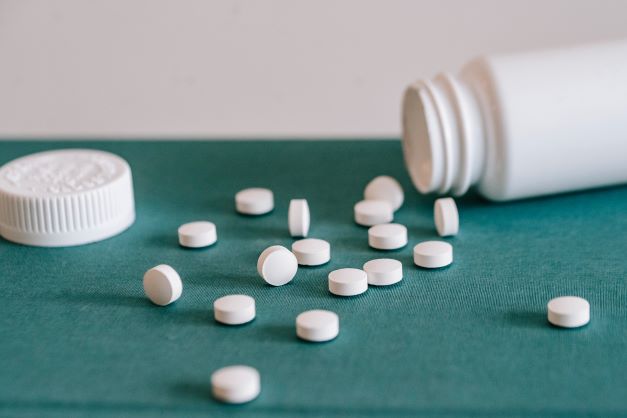Veterans Health Administration says 4.2 million veterans took psychiatric drugs in 2019, with 1.75 million on antidepressants linked to depression and suicide.
Veterans Day honors the service, valor, and sacrifice of those who served in the U.S. military. It has also become a day when veterans’ mental health comes to the forefront, since one in seven American adults who committed suicide in 2018 was a U.S. military veteran, according to the 2020 National Veteran Suicide Prevention Report from the U.S. Department of Veterans Affairs. The suicides averaged 17.6 per day.
The high suicide rates among U.S. service members and veterans were the subject of a paper published in June by the Watson Institute of International and Public Affairs at Brown University, which estimated that 30,177 active-duty personnel and veterans committed suicide in the two decades since the 9/11 attacks – four times as many as the 7,057 service members killed in action in post-9/11 war operations.

The paper explores possible causal factors, but there is no mention of the long-suspected link between those suicides and the skyrocketing number of prescriptions for mind-altering psychotropic drugs written for military personnel and veterans during the same period, at a rate that far exceeded the rate in the civilian population.
Between 2005 and 2011, the number of military prescriptions for psychoactive drugs, including antidepressants, antipsychotics and antianxiety drugs, soared by nearly 700%, or more than 30 times faster than the civilian rate. By 2013, one in six American service members was on at least one psychotropic drug, the Military Times reported.
In 2014, with more than 60% of suicides in the military committed by those on antidepressants or recently undergoing outpatient psychiatric care, the Citizens Commission on Human Rights (CCHR) produced its acclaimed documentary, “Hidden Enemy: Inside Psychiatry’s Covert Agenda,” which linked the rising rates of psychiatric drug prescriptions and suicides.
The high rate of antidepressant prescriptions to veterans has continued, and so have the suicides.
“If you give them time to normalize themselves, then the post-traumatic stress dissipates and they get back to living their normal lives.”
–Col. Bart Billings, retired military psychologist with 34 years’ service
In answer to a recent FOIA request by CCHR, the Veterans Health Administration (VHA) revealed that of the 9 million U.S. veterans enrolled with the VHA for health care services in 2019, 4.2 million – nearly half – were prescribed psychiatric drugs. Of that number, 1.75 million (41%) were taking antidepressants.
The risk of suicidal thoughts and actions from taking antidepressants is well-known. In 2004, the FDA ordered antidepressant labels to carry a black box warning concerning the increased risk of suicidal thinking and actions in children and teens. The warning was officially extended in 2007 to include young adults aged 18 to 24, an age range that includes many active-duty military and young veterans.
Though the FDA has not yet extended the black-box warning to all adults, evidence supports the view that it should. In a landmark 2016 study published in the Journal of the Royal Society of Medicine, a team of researchers at the Nordic Cochrane Centre reviewed clinical trials in which healthy adults with no history of depression or other mental disorders were given antidepressants. The researchers concluded that “antidepressants double the occurrence of events in adult healthy volunteers that can lead to suicide and violence.” Consider, then, how antidepressants could affect those already struggling with traumatic stress, depression, or other mental health issues.

It is not known how antidepressants work. What we do know is that the drugs disrupt the body’s normal biochemistry in ways that are not fully understood.
A team of researchers led by Paul W. Andrews, Ph.D., professor of psychology and evolutionary biologist, analyzed previous studies to determine the overall physical impact of antidepressants on the human body. Antidepressants target serotonin, a neurotransmitter that, in the course of the evolutionary adaptations of the human body, has come to regulate emotion, development, nerve cells, the clotting process, attention, electrolyte balance, and reproduction.
The researchers’ findings, published in 2012 in Frontiers in Psychology, were straightforward: “Our review supports the conclusion that antidepressants generally do more harm than good by disrupting a number of adaptive processes regulated by serotonin.”
Psychiatrist Peter Breggin, M.D., describes antidepressants as neurotoxic because they harm and disrupt the functions of the brain, causing abnormal thinking and behaviors that include anxiety, irritability, hostility, aggressiveness, loss of judgment, impulsivity, and mania, which can lead to violence and suicide.
Antidepressants can also take away the joy in life. “In the long run, antidepressants, like almost all psychiatric drugs, lead to apathy, indifference, and lack of caring,” writes Breggin. “Emotional life is dulled and relationships lack empathy and love.”
Severe physical and emotional withdrawal symptoms can be experienced when discontinuing antidepressants, especially after longer-term use. For some, symptoms are so unbearable that they are unable to quit, even when the drugs are gradually reduced by a physician.
Researchers James Davies, Ph.D., co-founder of the U.K.-based Council for Evidence-based Psychiatry, and John Read, Ph.D., professor of clinical psychology at the University of East London, conducted an analysis of 23 peer-reviewed studies on withdrawal from antidepressants. Their study, published in Addictive Behavior in 2019, found that more than 56% of people who attempt to come off antidepressants experience withdrawal effects, with nearly half (46%) of them rating those effects as “severe.”
A 2018 study published in Psychotherapy and Psychosomatics found that taking antidepressants led to worse depression symptoms years later. Subjects in the study were assessed for depression symptoms over a 30-year period. The researchers found that those who used antidepressants at any time during the study had an 81% greater chance of having more severe depression symptoms at the end of the study.
Colonel Bart Billings, a retired military psychologist with 34 years of service who founded the International Combat Stress Conference, has stated that in all his years of practice with military personnel and veterans diagnosed with “post-traumatic stress disorder,” he never once had to prescribe a mind-altering psychiatric drug.
In a 2014 interview, he explained that 99% of those who go into combat experience “post-traumatic stress, a normal reaction to being in an abnormal environment.” But, he says, “if you give them time to normalize themselves…, then the post-traumatic stress dissipates, and they get back to living their normal lives.”
“I explain to the psychiatrists and psychologists,” he continues, “that you really shouldn’t be medicating them because they have a normal brain, and once you medicate [them], what happens is it’s much, much harder to work with them because now you’re working with someone whose brain functioning is chemically, physiologically changed by the medications.”
Veterans have a right to the full disclosure of the increased risk of depression and suicidal thoughts and actions when taking or discontinuing the antidepressants and other psychotropic drugs recommended to them. Without this vital information, veterans cannot make fully informed decisions about their mental health treatment.
CCHR recommends a complete physical examination with lab tests, nutritional and allergy screenings, and a review of all current medications to identify any physical causes of depression or other unwanted mental or behavioral symptoms, which might otherwise be misdiagnosed as a psychiatric disorder and incorrectly treated.
WARNING: Anyone wishing to discontinue or change the dose of an antidepressant or other psychiatric drug is cautioned to do so only under the supervision of a physician because of potentially dangerous withdrawal symptoms.
